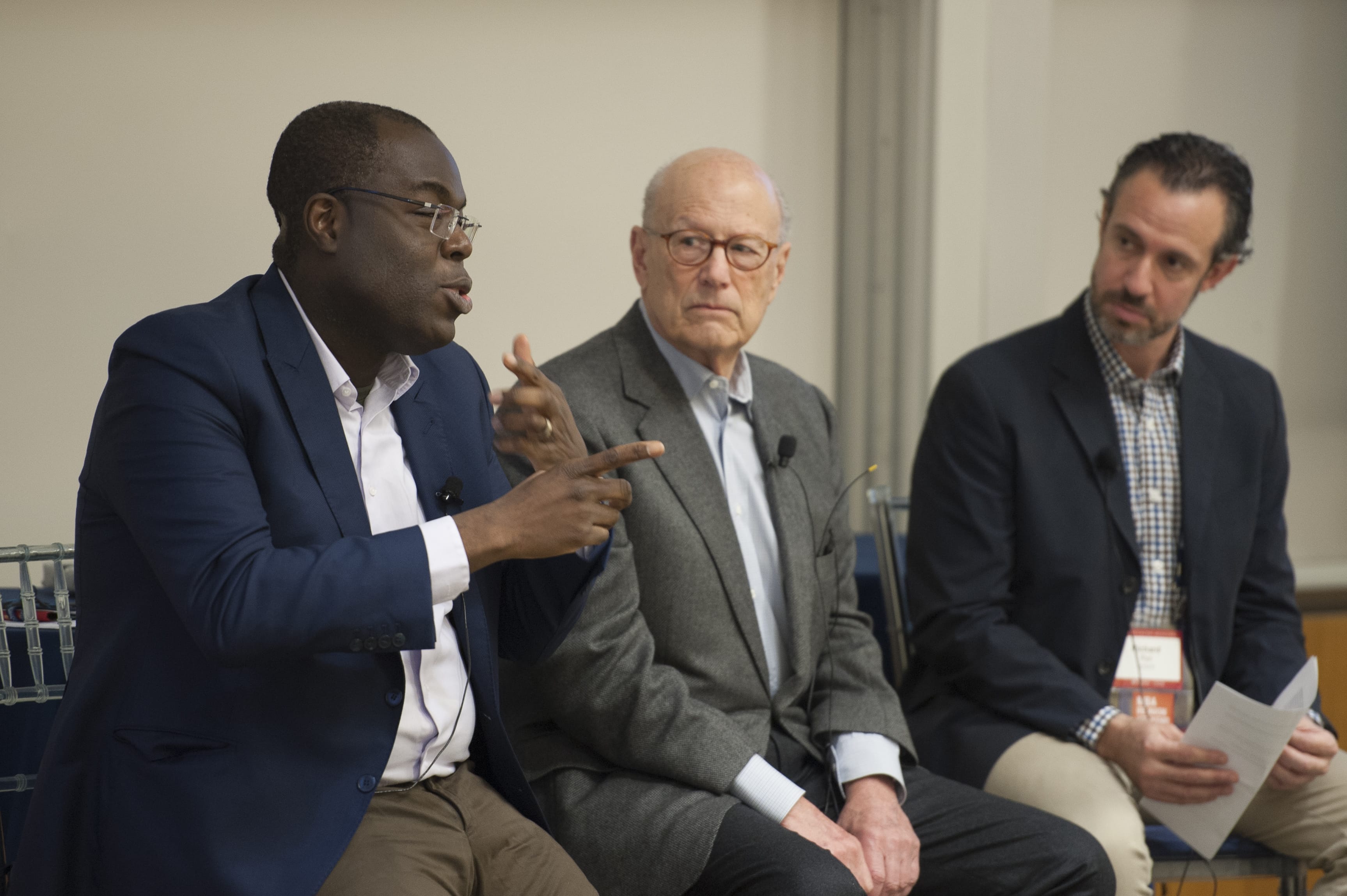Eric Kacou WG04 and Jerrold Fine W64 have more than just business success in common. Not only have they both made names for themselves launching companies, but they each also know all too well the intense ups and downs associated with writing a book.
“My goal was, could I do it? Believe me I wasn’t sure,” Fine said during an alumni authors panel hosted by Wharton Magazine at this year’s MBA Reunion Weekend. “I was very good at crumbling up paper and throwing it in the waste can.”
Fine, who gained prominence for co-founding a pioneering Wall Street hedge fund, made his debut as a novelist last year with Make Me Even and I’ll Never Gamble Again, which follows one man’s journey to the Wharton School and eventually to Wall Street. Kacou, on the other hand, leads a company working to support entrepreneurs in Africa and has written two nonfiction books focused on the continent: Entrepreneurial Solutions for Prosperity in BoP Markets and his most recent, Fly Africa.
Over the course of their conversation and a question-and-answer session with a nearly packed audience in Huntsman Hall, the authors depicted an industry requiring hard work that, like many other sectors, has been disrupted in recent years by technology.
For one, technology has made self-publishing a more common route to distribution. Kacou, who went through a traditional publishing process for his first book, decided to self-publish his second one with co-author and fellow Wharton alumnus Hassan El-Houry WG07. For many authors, Kacou said, self-publishing “makes the process a lot easier. It also means that the quality that you get out is very uneven.” But the stigma that has long been associated with self-publishing has been waning with the rise of digital dissemination methods and social media platforms, where authors can put in work themselves to garner followings for their books. “There’s a lot of books that have been self-published that have done well,” Fine said.
The publishing process aside, both writers stressed the value of their own networks in helping their books gain traction. For Kacou, relationships built within the Wharton community have been especially rewarding. “You won’t believe the number of emails you get from your classmates,” he said. “It’s a big deal.” Fine recalled a different reaction from his Wall Street colleagues when they learned about his book—”You’ve got to be kidding me”—and said he understands the sentiment: “Who runs a hedge fund and writes a creative novel?”
In the realm of nonfiction, leveraging an existing professional reputation also can help spread the word about a book. Kacou, whose writing interests overlap with his professional focus, has looked to promote his books at industry conferences and as an expert in the media. “If you build a platform before, then you can use that platform to market the book,” he said.
Even with those resources, the chances of mass success in the industry are a long shot. “If you go in there thinking ‘Look, I’m going to make a million dollars from the book itself’—if that’s the goal, the odds are not in your favor,” Kacou said.
Fine also painted a sobering picture of the sector, estimating that in the year he was working to produce his book, publishers on average sold roughly 1,000 copies for each book they printed, and self-publishers sold less than 100. “We’re talking about some pretty tough odds here,” he said.
Still, for alumni up to the task, Kacou offered insight into how aspiring authors can convince others of their book’s commercial viability. “It’s the same process that all of us go through in whatever business we’re in,” he said. “If you’re convinced of something, you try to sell it to somebody and you build an argument and you really stick to it.”


























